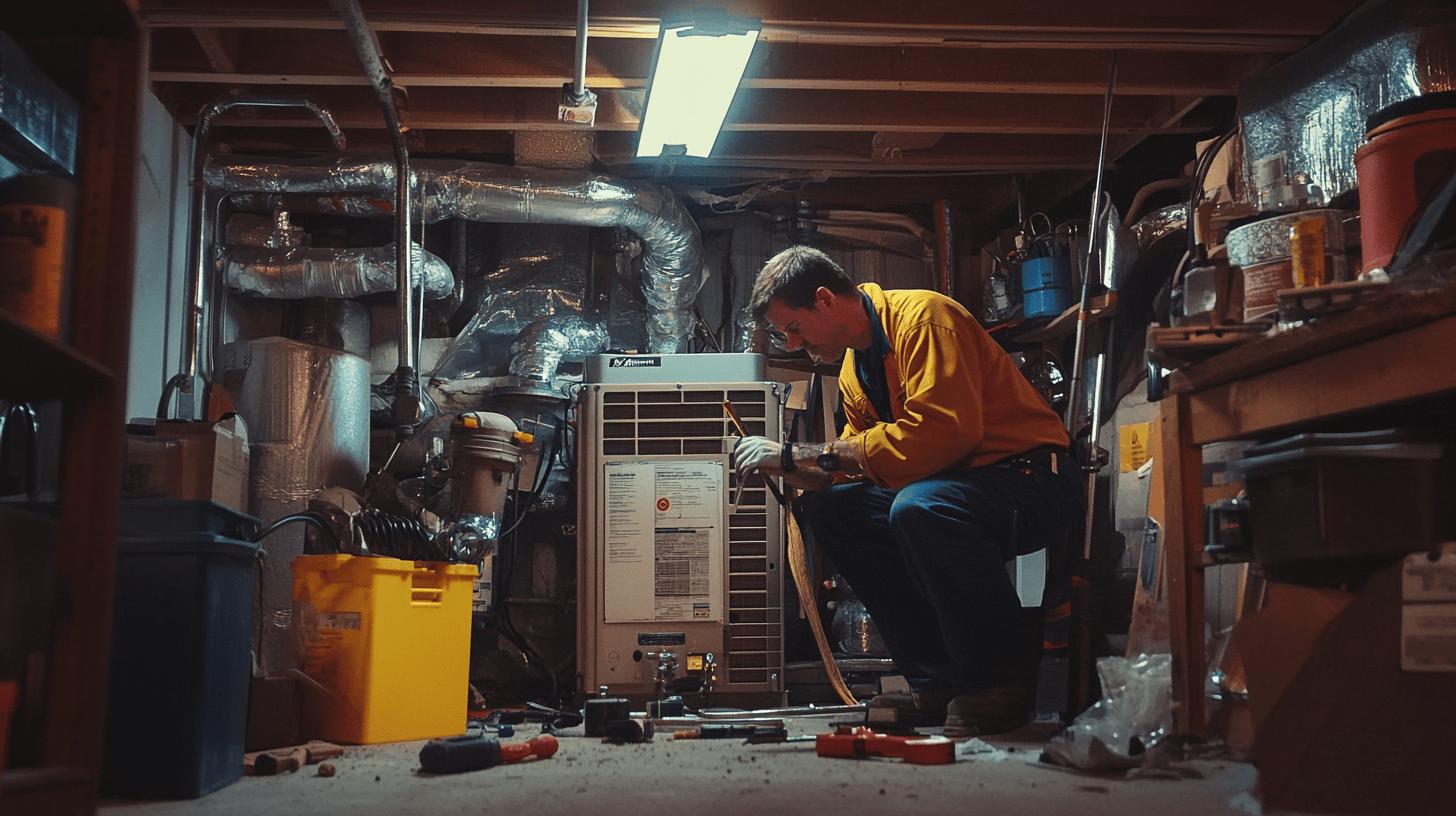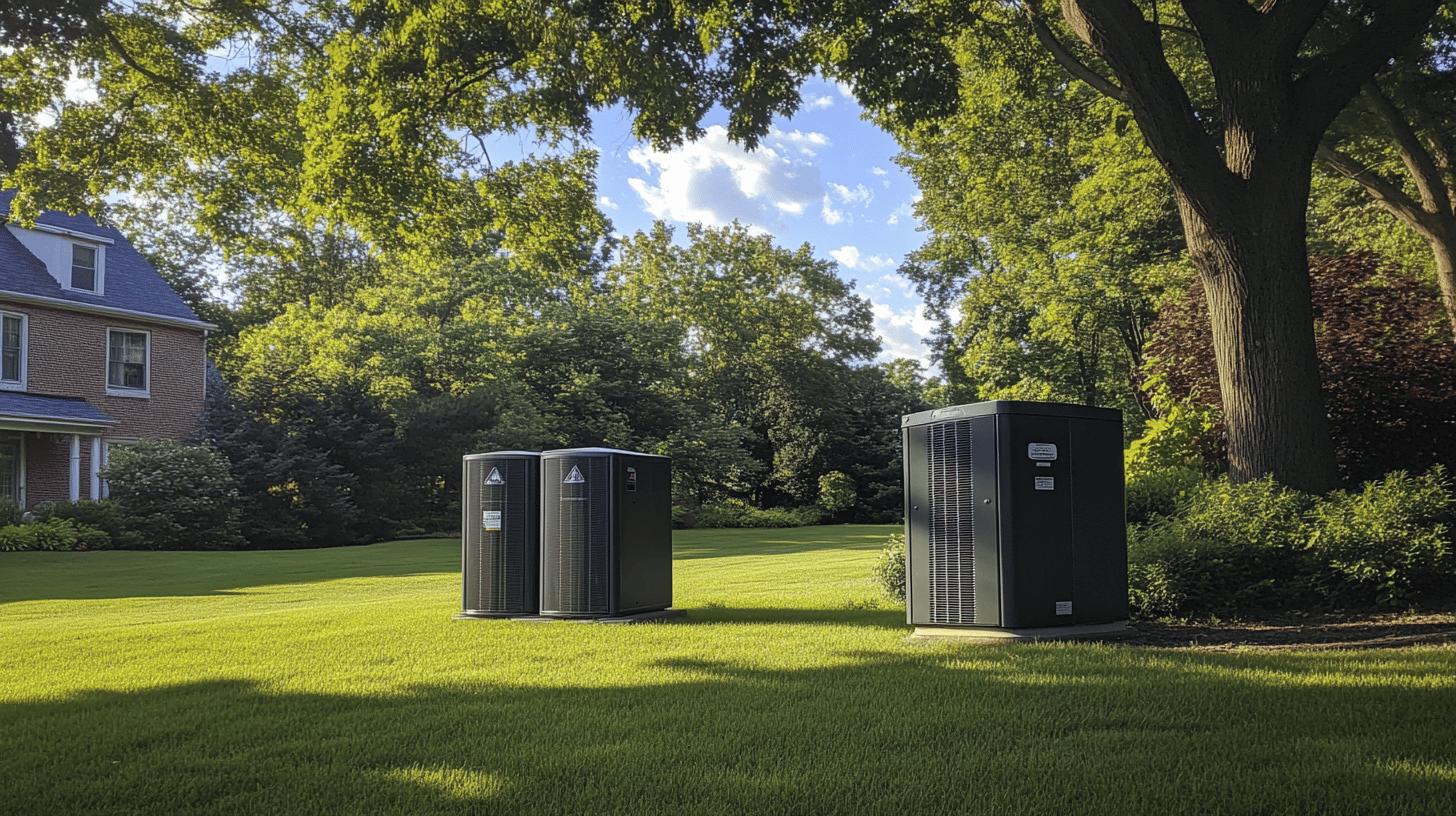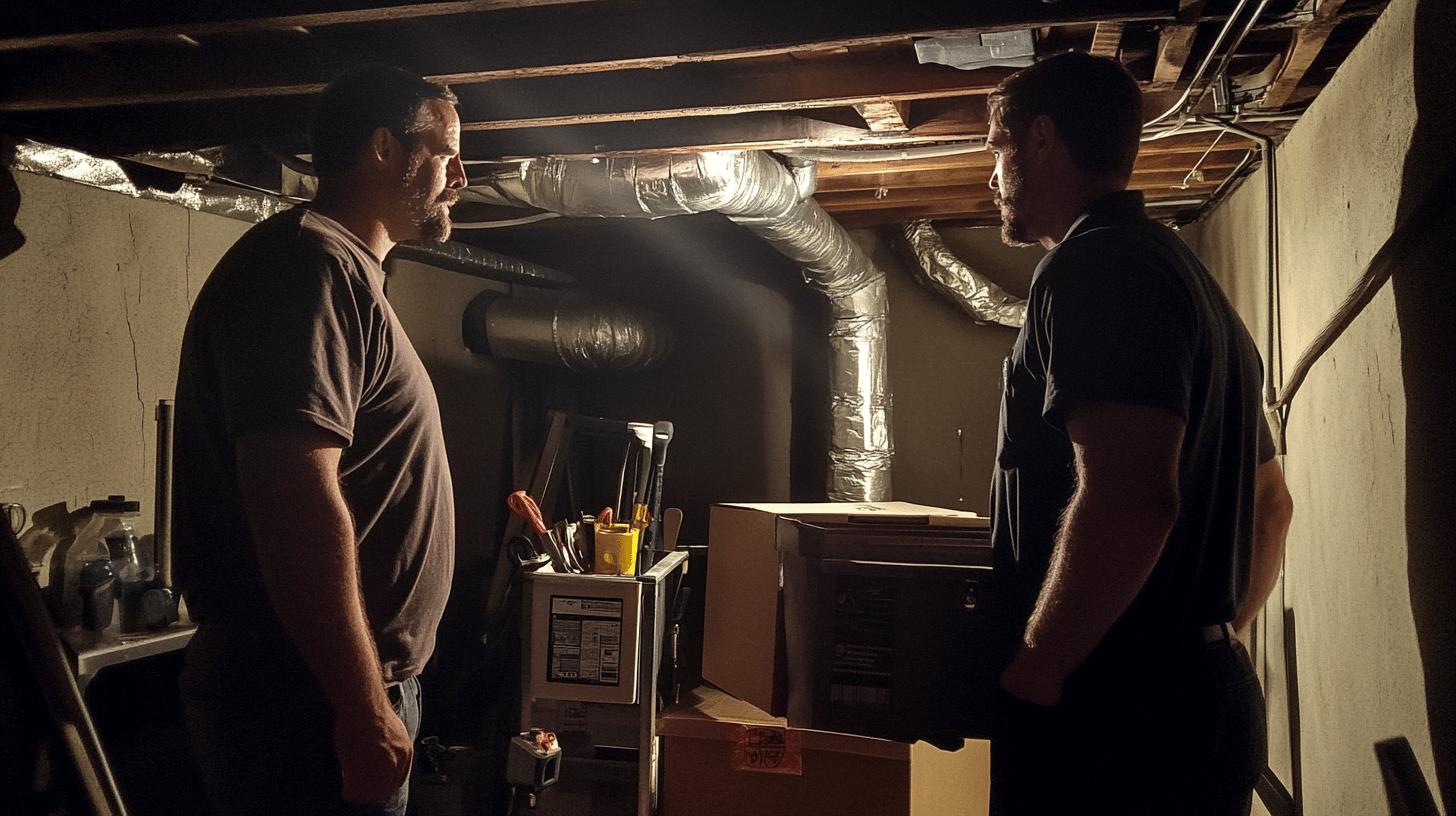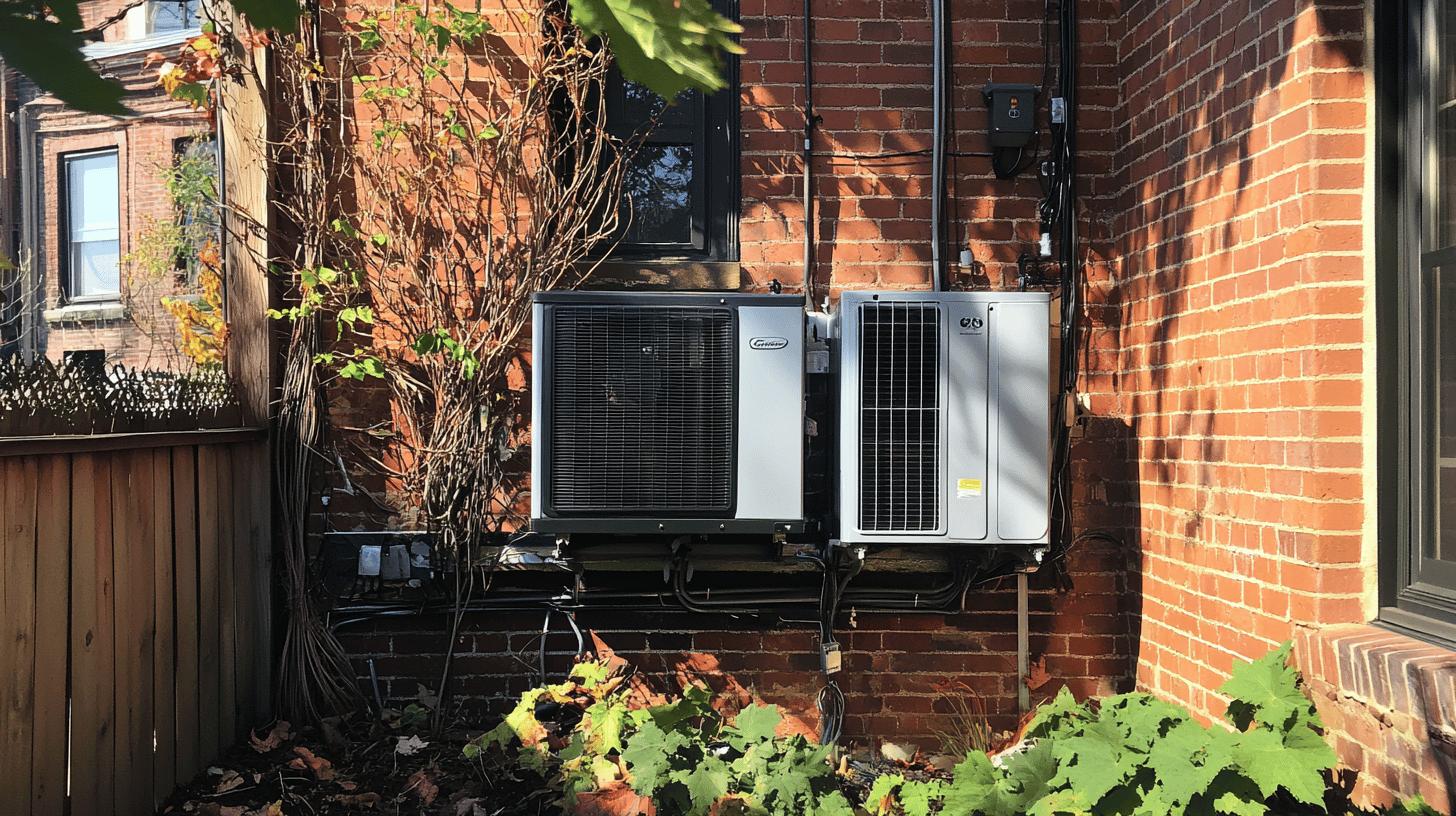Understanding the differences between electric and gas HVAC systems can guide your decision-making, whether for home comfort or cost-effectiveness. Electric systems are celebrated for their clean operation but might bring higher energy bills. Gas systems, while efficient in cold climates, pose challenges with emissions. Are HVAC Systems Electric or Gas? Let’s uncover which HVAC option suits your needs best and learn the pros and cons of each energy source.
Understanding Electric and Gas HVAC Systems
Electric HVAC systems use electricity to power main components like compressors and fans for heating and cooling. These systems may include air source heat pumps, which efficiently transfer heat from outside into your home. Electric systems are eco-friendly because they don’t produce emissions on-site. This makes them appealing in places where renewable energy is available. They are also quieter and require less maintenance, potentially reducing long-term costs.
Gas HVAC systems rely on natural gas, mainly for heating. They typically include a furnace that burns gas to heat air, which is then spread throughout the home. Gas systems are efficient in very cold climates, providing steady and strong heating. Their higher initial costs arise due to venting and gas line needs, but operational costs can be lower where natural gas is cheaper than electricity.
- Advantages of Electric Systems:
- Environmentally friendly; no on-site emissions
- Quiet operation
- Less maintenance needed
- Suitable for areas with renewable energy
- Lower installation costs
- Disadvantages of Electric Systems:
- Higher operational costs where electricity is pricey
- Less effective in very cold climates
- Advantages of Gas System:
-
- Strong heating in cold climates
- Lower operational costs with affordable gas
- Consistent heating performance
- Disadvantages of Gas Systems:
- Produces emissions, a larger carbon footprint
- Higher installation costs
- Needs regular safety checks
Comparing Costs and Efficiency: Electric vs. Gas HVAC Systems

When evaluating HVAC systems, both initial and operational costs matter. Electric HVAC systems often have lower initial costs since they need simpler installation, without venting or gas lines. However, operational costs might be higher if electricity is expensive. Gas systems can cost more to install but might have lower running costs if natural gas is cheaper locally.
Efficiency is vital for energy use. Seasonal Energy Efficiency (SEER) Ratio measures cooling efficiency, and Annual Fuel Utilization Efficiency (AFUE) measures heating efficiency. Electric systems, especially heat pumps, usually have higher SEER ratings, showing better cooling efficiency. In contrast, gas systems often have higher AFUE ratings, proving better heating efficiency in cold climates. Checking these ratings helps you choose a system that balances cost and performance.
Environmental Impact of HVAC Energy Sources
Are electric HVAC systems eco-friendly? Yes, they are, especially when powered by renewable sources like wind or solar. They don’t produce on-site emissions, making them a cleaner choice for reducing your home’s carbon footprint. Using renewable energy, electric systems can cut greenhouse gas emissions, supporting a more sustainable environment. In areas with accessible and affordable renewables, electric systems are a smart choice for environmentally conscious homeowners.
What are the environmental challenges of gas HVAC systems? Gas systems mainly face challenges from emissions during operation. These systems burn natural gas, emitting carbon dioxide and other greenhouse gases, increasing their carbon footprint. Though efficient for strong heating in cold climates, their environmental impact is a concern, making them less sustainable than electric alternatives. Considering environmental priorities, electric systems are cleaner, especially if renewable energy options are available.
Application Suitability: Choosing the Right HVAC System

When picking residential HVAC systems, deciding between electric, gas, or dual-fuel options depends on several factors. Precision Answer: Climate, energy prices, and environmental impact preferences are key. Electric systems are ideal for moderate climates where renewable energy can be used, offering eco-friendliness with lower maintenance. Gas systems excel in delivering strong heating, suitable for homes in very cold regions where natural gas is cheap and available.
For commercial HVAC systems, consider building size, use patterns, and local energy costs. Precision Answer: In large spaces, the choice depends on efficiency and cost-effectiveness. Electric systems might be favored in urban areas with renewable energy incentives, providing clean energy solutions for businesses focusing on sustainability. Gas systems, with robust heating capability, serve industries needing consistent, strong heating, especially in colder climates.
Climate Considerations
Regional climate greatly affects HVAC system choice. Precision Answer: Electric systems work best in moderate climates and areas with renewable energy support, while gas systems suit colder climates. In warm areas, electric systems, like heat pumps, efficiently cool and heat by using mild temperatures. Conversely, gas systems are beneficial in northern areas, where winters need reliable heating. Understanding your climate helps tailor decisions to maximize HVAC efficiency throughout the year.
Maintenance and Longevity of Electric and Gas HVAC Systems
Electric systems need less maintenance due to simpler design and fewer moving parts. They are usually quieter, an advantage in residential settings. For best performance, they should have biannual servicing, checking components like compressors and fans. This maintenance increases the system’s life and keeps efficiency high for heating and cooling.
Gas systems need detailed maintenance because of combustion processes. Regular checks are vital for safety and efficiency, focusing on burners, heat exchangers, and gas lines. These systems must be checked for leaks and venting issues to prevent harmful gas buildup. Despite the need for more checks, gas systems provide strong heating in cold climates, justifying the maintenance.
- General Maintenance Tips for HVAC Systems:
- Plan bi-annual professional servicing
- Replace air filters monthly for good airflow
- Check electrical connections and tighten loose wires
- Keep outdoor units clean to ensure airflow
- Pay attention to unusual system noises
Professional vs. DIY HVAC Installation and Maintenance

Are professional HVAC installations beneficial? Precision Answer: Yes, they ensure correct installation and efficient operation. Skilled plumbers play a key role in managing complex setups like ductwork and system calibration. Professional services like Green Energy Mechanical, Inc. help pick the best system for specific needs. Professional maintenance includes essential inspections for safety and lifespan, reducing risks that could lead to costly repairs.
Is DIY HVAC installation risky? Precision Answer: Yes, without expertise, there’s more risk of incorrect setup, causing inefficiencies or failures. DIY often misses crucial details, like venting and electrical connections, affecting performance and safety. Complex systems need precise installation and maintenance, best done by pros. DIY can void warranties and increase costs, making professional advice crucial for reliability and efficiency.
Final Words
Exploring whether HVAC systems are electric or gas involves understanding their primary characteristics and functionalities. Electric systems offer an environmentally friendly choice, while gas systems excel in colder climates. In terms of cost and efficiency, electric systems may initially be more affordable, but operational costs hinge on energy prices. Gas systems might initially cost more but offer high efficiency in severe cold, underscored by SEER and AFUE ratings.
Considering environmental impact, electric systems powered by renewable sources minimize carbon footprints, but gas systems have higher emissions. Appropriate system selection depends on your climate, with both residential and commercial applications benefiting from tailored decisions. Maintenance plays a crucial role in system longevity, stressing regular checks and professional involvement over DIY maintenance.
Choosing between electric and gas HVAC systems enables a personalized approach to comfort, efficiency, and eco-friendliness.
FAQ
How do I know if my HVAC is gas or electric?
To determine if your HVAC is gas or electric, check the energy source and components. Gas systems have a gas line and burners, while electric systems rely on electrical connections and no fuel lines.
Can an HVAC be both gas and electric?
Yes, an HVAC system can be a dual-fuel system, combining gas and electric elements for optimized efficiency. These systems switch between energy sources based on temperature and efficiency needs.
Is an HVAC system electric?
An HVAC system can be electric, gas, or a combination of both. Electric systems use electricity for heating and cooling, often with more environmentally friendly and emission-free operations.
Does my air conditioner use gas or electricity?
Air conditioners typically use electricity for operation. While most cooling systems are electric, a combined HVAC system might use gas for heating and electricity for cooling functions.

